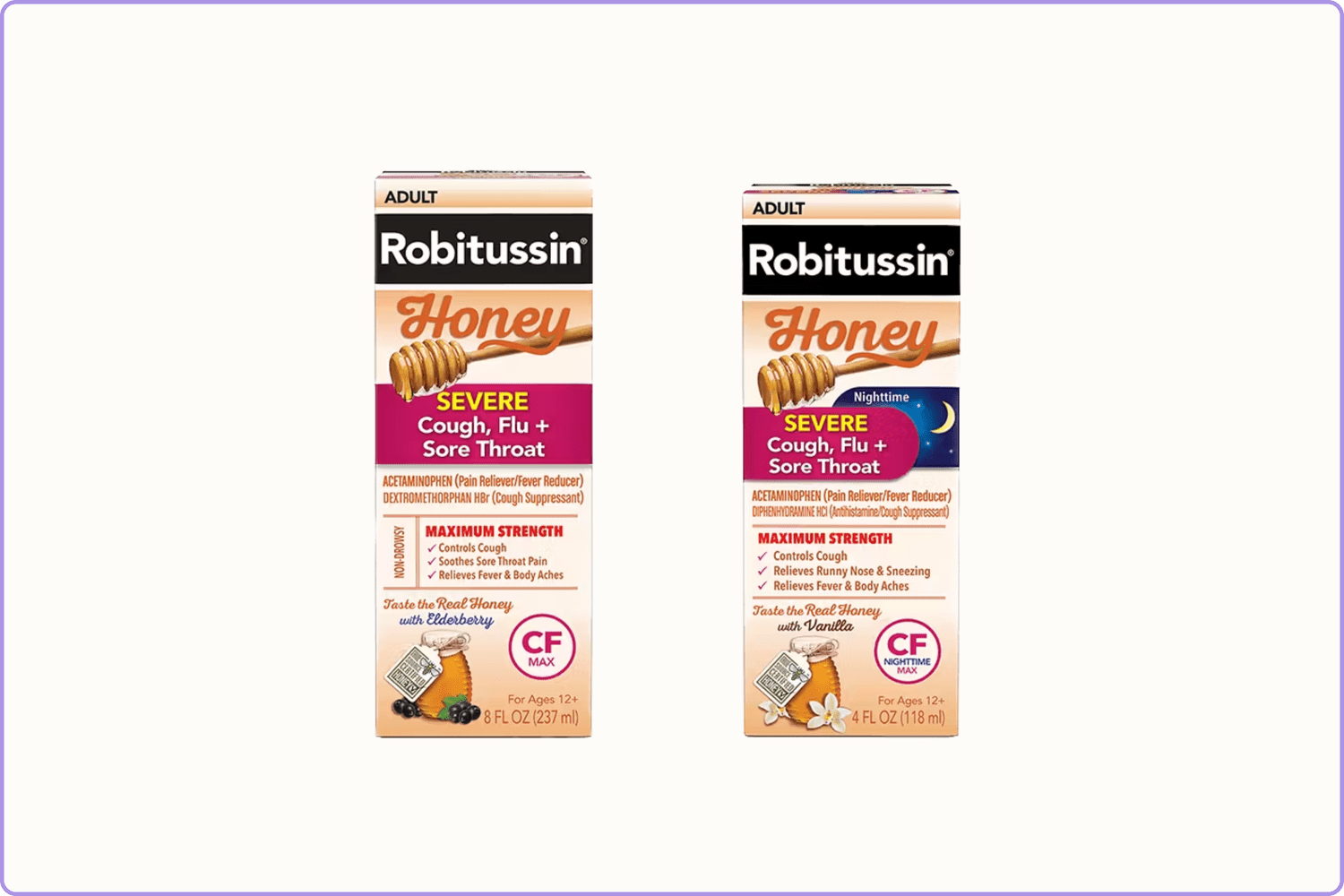Recall of Robitussin Cough Syrups Due to Microbial Contamination Worries

Today, the Food and Drug Administration (FDA) has released an announcement concerning the recall of two Robitussin products.
The maker of Robitussin, Haleon, has initiated a countrywide recall of two of its cough syrup products—Robitussin Honey CF Max Day Adult and Robitussin Honey CF Max Nighttime Adult—due to microbial contamination, as shared by the FDA.
Eight lots of the mentioned products, used temporarily to alleviate symptoms of cold or flu, respiratory allergies and hay fever, are affected by this recall, which coincides with the peak season for respiratory viruses.
The product details for the recall, including lot numbers and expiration dates, were provided in the company's press release, made public with the FDA's help.
Microbial contamination involves the presence of harmful pathogens in items such as food, drinks or products. The specific microorganism that has contaminated these cough syrups remains unclear. However, the recall could imply the existence of bacteria, viruses, fungi, parasites, or prions.
This type of contamination can occur at any production stage. It underlines the importance of maintaining proper hygiene and safety practices throughout the entire process, from manufacturing to the administration of the product.
At this stage, Haleon has confirmed that there have been no reports of any adverse events linked to the recall. Nonetheless, it's important to note that for those who are immunocompromised, the affected products can potentially lead to serious or even fatal health conditions such as fungemia or a widespread fungal infection.
The company said that individuals who are not immunocompromised are not likely to experience adverse reactions from ingesting these recalled products, although such risks 'cannot be ruled out'.
According to Haleon, they are directly informing their customers and distributors on the recall and providing them with instructions on how to return or dispose of the affected products.
They advise consumers who may have these products at home to immediately stop using the cough syrups and to consult a doctor or healthcare provider if they have suffered from adverse events while using these products.




